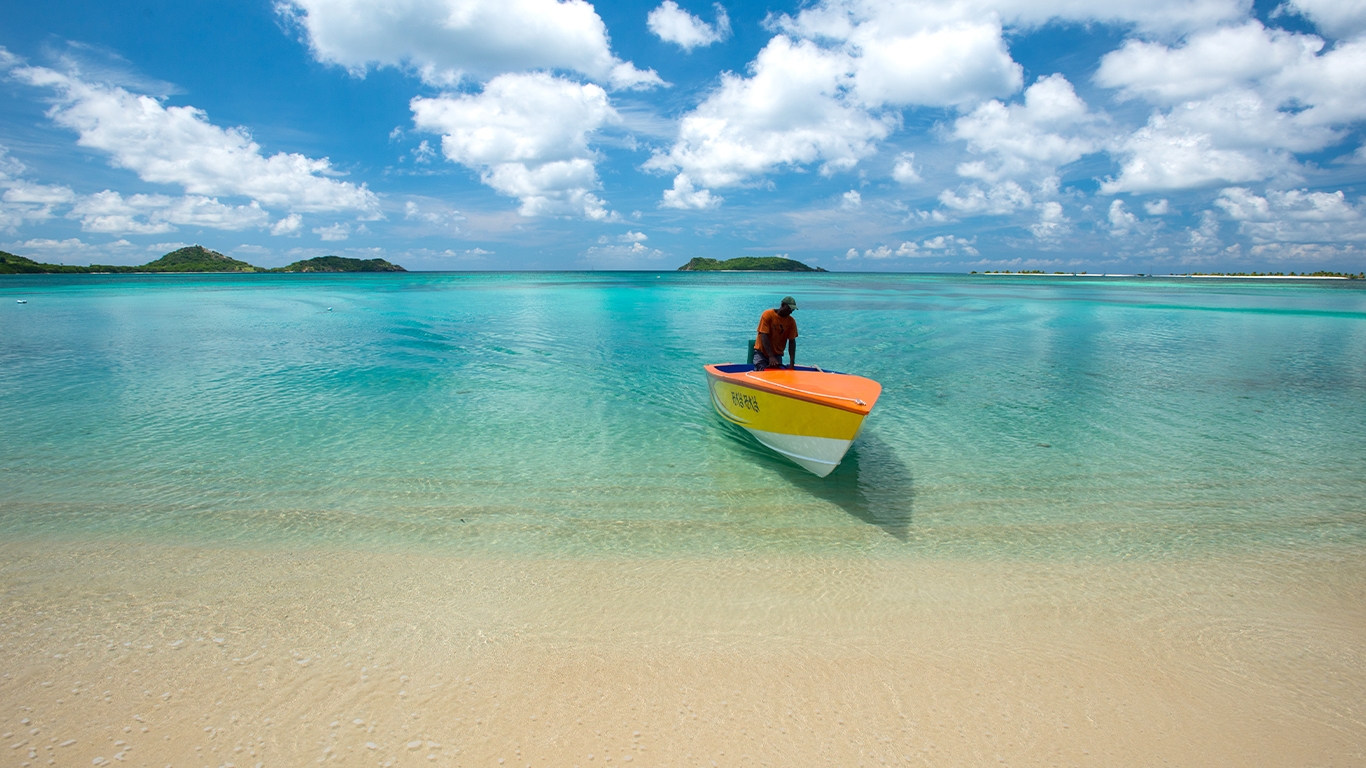
In a world increasingly recognizing the vital role of our oceans, Grenada stands out with a Blue Economy that’s not just about resources, but about a deep-rooted connection to the sea, a commitment to sustainability, and a unique blend of natural assets and community spirit. What makes Grenada’s approach to its Blue Economy so special? It’s a confluence of factors that create an environment ripe for responsible growth and innovation.
Grenada’s waters are a tapestry of vibrant coral reefs, intriguing shipwrecks, and diverse marine life. Our Exclusive Economic Zone (EEZ) holds significant untapped potential in areas like sustainable aquaculture of high-value species, ethical and low-impact fishing practices, and the exploration of marine biotechnology. Unlike larger nations with heavily industrialized coastlines, Grenada has the opportunity to develop these sectors from a foundation of relatively healthy ecosystems, allowing for truly sustainable practices from the outset.
Our stunning coastline, coupled with crystal-clear waters, makes Grenada a natural haven for high-value eco-tourism. But it’s more than just sun and sand. Our underwater world beckons divers and snorkelers to explore thriving reefs, while our coastal ecosystems offer opportunities for kayaking, sailing, and wildlife observation. What sets us apart is the potential for authentic, community-integrated experiences that prioritize conservation and education, attracting discerning travelers who value sustainability.
Grenada understands that the health of our marine environment is intrinsically linked to our economic prosperity and cultural identity. There’s a growing national consciousness around marine conservation, with local communities, NGOs, and the government actively involved in initiatives to protect our coral reefs, manage coastal zones, and combat marine pollution. This inherent commitment provides a strong foundation for developing a truly sustainable Blue Economy.
Grenada boasts a rich maritime heritage, with generations of fisherfolk possessing invaluable knowledge of our waters. Integrating this traditional wisdom with modern scientific research and innovative technologies offers a unique pathway for sustainable development. Imagine combining traditional ecological knowledge with cutting-edge aquaculture techniques or using local expertise to guide eco-tourism initiatives.
As a smaller island nation, Grenada possesses a scale that allows for more agile development and closer collaboration between government, the private sector, and local communities. This fosters a more integrated and responsive approach to Blue Economy initiatives, enabling quicker implementation of sustainable practices and a more direct impact from investments.
Strategically located within the Eastern Caribbean, Grenada can serve as a hub for Blue Economy initiatives within the region. Our experiences and successes can be shared, and collaborations fostered in areas like sustainable fisheries management, marine research, and eco-tourism development, creating a synergistic effect.
Grenada recognizes that the success of its Blue Economy hinges on the skills and knowledge of its people. There’s a growing focus on education and training in marine-related fields, empowering local communities to actively participate in and benefit from the sustainable use of our ocean resources. This investment in human capital ensures long-term stewardship of our blue assets.
In essence, what makes Grenada’s Blue Economy special is the unique combination of pristine natural assets, a growing national commitment to sustainability, the potential to blend traditional knowledge with modern innovation, a scale that fosters collaboration, and a focus on empowering its people. It’s an opportunity to invest not just in economic growth, but in a future where the vibrant blue heart of Grenada thrives for generations to come. We invite you to explore this untamed blue frontier and discover the unique advantages it offers.
Sources:
